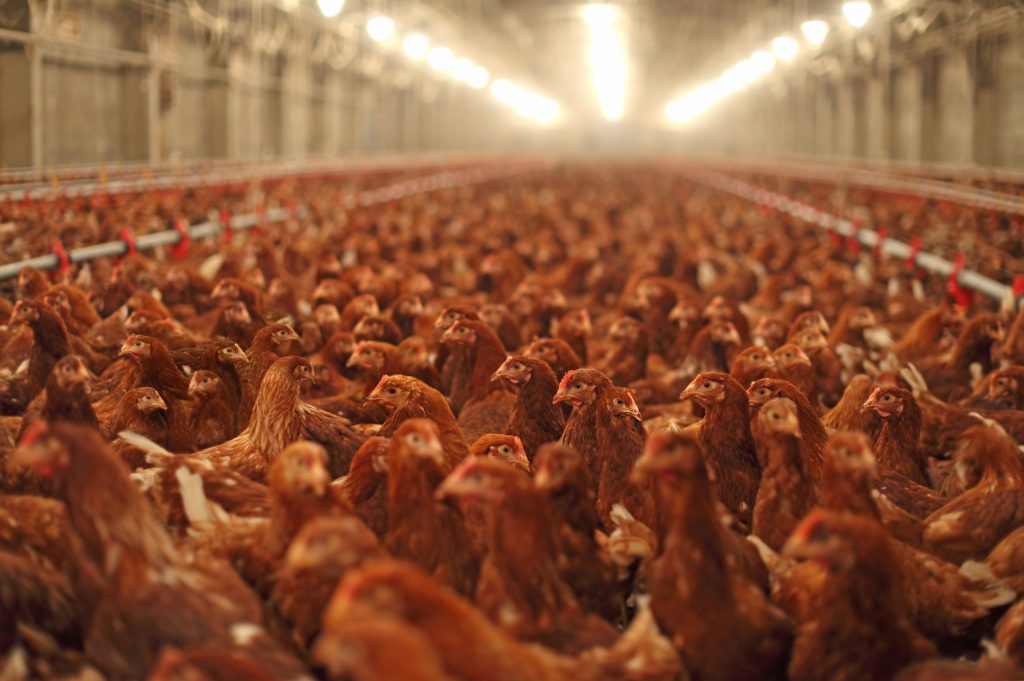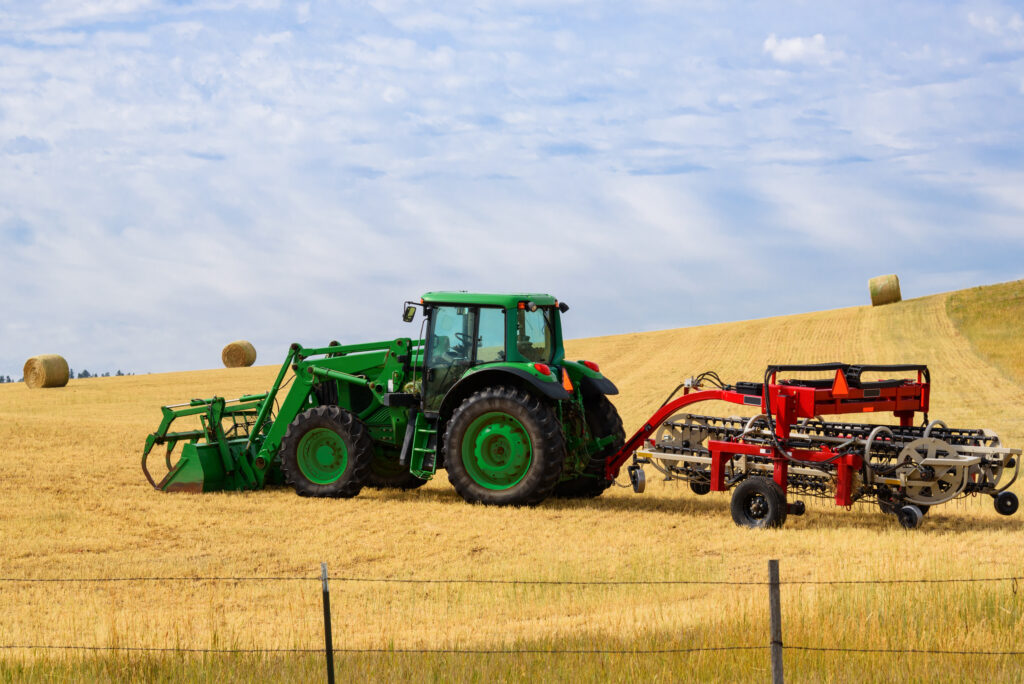Reposted from: https://washingtonmonthly.com/2021/08/25/more-trouble-with-big-chicken/
Last week, leading voices in The New Yorker and The New York Times made the case for vigorous antitrust enforcement of Big Agriculture, an issue the Monthly has covered for years. (Nine years ago, for instance, Lina Khan, now the chair of the Federal Trade Commission, wrote an account in the Monthly about the Obama Administration’s admirable, but ultimately failed, efforts to stand up to big meatpackers on behalf of independent farmers.) The Times, specifically, made the case for breaking up Big Chicken, as leading chicken corporations face numerous allegations and federal charges of fixing prices for consumers, farmers, and workers.
The Times column, though, failed to mention that antitrust enforcers currently face an opportunity to challenge consolidation in the criminal poultry business, and the clock is ticking. On August 9th, private protein and grain trading giant Cargill and agricultural-investment firm Continental Grain announced that they had reached a deal to jointly take over Sanderson Farms, the third-largest chicken processor in the U.S., for $4.5 billion.
If approved, this deal would merge Continental Grain’s Wayne Farms with Sanderson Farms to create a new private poultry corporation, increasing the market share of the top three chicken processors from 46% to 51%, according to data from WATT PoultryUSA, a business magazine for the chicken industry. It would also further vertically integrate Cargill’s global meat processing, animal feed, and grain trading empires. Both forms of consolidation would enhance Big Ag’s power over farmers, workers, and consumers across the food chain. Federal enforcers have 30 days from the corporations’ notice of the merger to issue what is called a second request which allows them to seek additional information to scrutinize and challenge the deal. The big question is, will the Biden administration walk its antitrust talk?
Decades of mergers and vertical integration have consolidated poultry production so that just a handful of firms source chicken from contracted farmers. Private and federal antitrust suits recently accused major poultry corporations of conspiring to rig bids, cut back production, and increase chicken prices. Pilgrim’s Pride pleaded guilty to price-fixing last fall following an investigation by the Justice Department, and federal enforcers have indicted other major corporations and poultry executives. Sanderson Farms was subpoenaed in the federal probe. Both Sanderson and Wayne Farms face numerous private price-fixing charges, including allegations of conspiring with other poultry corporations to hold down prices paid to farmers and workers’ wages. Cargill is also charged in this wage-fixing suit, as well as private beef and turkey price-fixing allegations.
As the third-largest chicken corporation, Sanderson Farms processes more than 13 million chickens a week between its 13 poultry plants, employing 17,000 people, and supplying large chains including Walmart and distributors such as Sysco. Sanderson trails industry leaders Tyson Foods and Pilgrim’s Pride, but a merger with Continental Grain’s Wayne Farms would increase its market share to approximately 15%, just shy of Pilgrim’s 16%.
Cargill and Continental Grain will pay a 30% premium on Sanderson Farms’ shares to jointly acquire the company and take it off the stock exchange, subject to shareholder and antitrust approval. Credit Suisse stock analysts claimed the deal would not take enough national market share to raise antitrust scrutiny. But given ongoing price-fixing investigations, Sen. Chuck Grassley (R-Iowa) urged the Justice Department to investigate this acquisition because it poses risks of increased costs or decreased choices for consumers.
Consolidation in the national market can lead to even higher levels of regional consolidation that hurt farmers, workers, and rural communities. For instance, half of all chicken farmers report having just one or two corporations to work with. Sanderson and Wayne both primarily operate in the Southeast, but it is unclear how much they compete for farmers or workers. Sanderson’s plants are largely concentrated in Texas, Mississippi, Southern Georgia, and North Carolina, while Wayne operates primarily in Alabama and Northern Georgia.
Nonetheless, farmers worry about what a change in Sanderson’s leadership will mean for them. “Growers are very, very afraid they are going to see a pay cut,” said Reid Phifer, a former poultry grower from North Carolina and the administrator of a poultry forum representing some 4,200 growers. “They don’t know who will be giving the orders. … Everyone is afraid of the unknown.”
Workers also fear job losses in regions where Cargill, Wayne, or Sanderson facilities overlap. For instance, Cargill operates a cooked turkey products facility in Waco, Texas, employing nearly 650 people, and Sanderson operates a live chicken processing facility, also in Waco, employing 1,200. A spokesperson for Cargill told the Waco-Tribune Herald that the plants would “both likely remain open” given the current demand for poultry, but that’s hardly reassuring to workers who know that merged companies always look for savings through consolidation. Sanderson and Wayne also both operate chicken processing facilities in Laurel, Miss., Sanderson’s corporate headquarters. With the chief executive of Georgia-based Wayne Farms slated to run the combined business, the Laurel Leader Call reports some residents fear losing administrative jobs with Sanderson.
Sanderson Farms did not respond to a request for comment on their plans for merging plant and farmer networks with Wayne Farms. Cargill and Continental Grain declined to comment. “As part of the newly created company, Sanderson Farms and its new owners will remain committed to the employees, poultry producers, customers, communities, environment, and animals under our care,” Joe Sanderson chairman and chief executive officer of Sanderson Farms said in a press release.
Beyond the implications of merging Wayne and Sanderson, this deal represents a considerable vertical merger into what the industry dubs “a new protein line” for agribusiness giant Cargill. America’s second-largest private corporation, Cargill has been looking to enter the U.S. chicken business for the past five years, the president of the company’s North American protein business told the Minneapolis Star Tribune. Cargill is already a top-four producer of U.S. beef and turkey and operates chicken businesses abroad in Canada, the U.K., China, Thailand, and four Latin American countries. Cargill also sells products to chicken businesses — soon to be its competitors — including chicken feed mixes and additives, as well as software programs that use farmer data to predict outcomes and recommend changes to increase profits.
Most critically, Cargill buys and trades the key commodities that go into chicken feed, namely corn and soy. Feed makes up roughly 75% of Sanderson Farms’ production costs, according to an undated company blog, and feed prices are rising. Tyson Foods posted a third-quarter loss in its chicken unit, despite a seven-year high in wholesale chicken prices, citing high feed prices (plus millions in legal fees from price-fixing suits). Sanderson also reported issues with high feed costs to investors for its second quarter.
A huge hand in grain and soy processing gives Cargill even more power. The behemoth processes 21% of all U.S. soybeans and shares 87% of all wet corn milling with two other corporations. (Wet milling breaks down corn into its component parts, such as corn oil.) As such, Cargill has the market dominance to demand low prices from grain farmers. This kind of vertical integration across many commodity markets and international trading also gives it exceptional knowledge to maneuver markets not only in the U.S. but around the globe and cross-subsidize its many ventures.
“Regulators don’t totally know how to handle a company like Cargill, because … they control an enormous amount of information about commodity supply chains that no one else has,” says Ben Lilliston, director of rural strategies for the Institute for Agriculture and Trade Policy, which advocates for family farmers and rural communities. “Because they are so diverse and big, they can choose to lose money in one sector temporarily if they think it is going to gain in the long term … if they want to undercut the market on feed to make their chicken cheaper, they would be able to, and it would be hard to track.”
Merger enforcement has decreased over the past 50 years, especially when it comes to vertical mergers. Corporations such as Cargill have avoided scrutiny by arguing that their control over meat production from grain to grocery shelf trims margins and improves efficiency. This is a rehash of the argument by the late Robert Bork, the legal scholar and jurist, who argued in his influential 1978 work, The Antitrust Paradox, that efforts to fight corporate consolidation hurt consumers. However, this focus on efficiency overlooks the risks of decreased competition and increased market power that Congress intended to outlaw when it passed antitrust laws such as the 1914 Clayton Act. “Vertical integration is not about efficiency any longer. It is all about control,” argues Joe Maxwell, president of Family Farm Action [Alliance]. “It’s a more efficient [way] to put money in the pockets of Cargill.”




